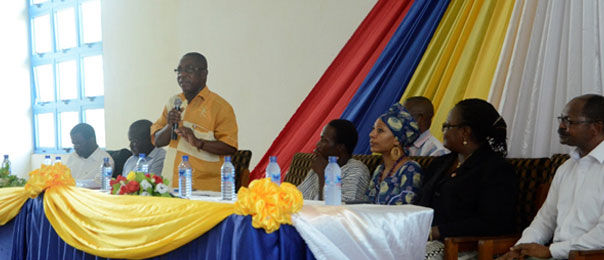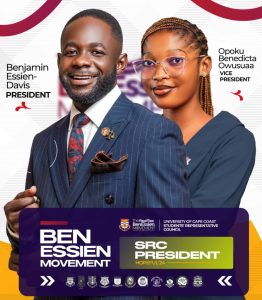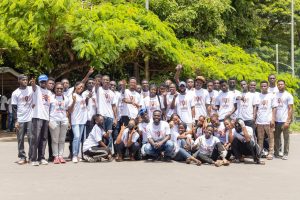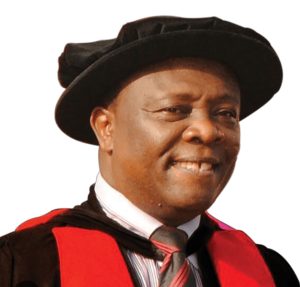 A roundtable discussion on the Genetically Modified Organisms (GMO) under the auspices of the Faculty Arts of the University of Cape Coast has been held at the university.
A roundtable discussion on the Genetically Modified Organisms (GMO) under the auspices of the Faculty Arts of the University of Cape Coast has been held at the university.
The issue of GMO has assumed both national and international dimensions and a lot of debates have characterised its introduction on the continent. Of late many civil and interest based organisations have talked about the imminent adverse effects of the acceptance of GMO’s by the country.
The discussants who shared varied opinions on the subject matter were the chairperson of the Convention People’s Party, Samia Nkrumah, Kojo Asare Preko, Rev. Fr. Dr. S. K. Appiah of the Department of Religions and Human Values, U.C.C, Rev. Dr. Isadane Bonabom, Law Faculty, UCC, Dr. Samuel Annim, Department of Economics, UCC and Dean School of Biological Sciences, UCC, Dr. Isaac Galyuon.
The lead discussant, Miss. Samia Nkrumah called on the youth of the country to interrogate the issue in whatever platform that would be available since it was more geared towards the future of the country and added that “I want you to be the conscience of this country; the matter has health implications for us”.
Miss Nkrumah wondered whether the issue that Africans needed genes to enhance agriculture on the continent was a priority since there was dire need for us to strategise to reduce post-harvest losses and improvement in Agriculture. She emphasised that though there was the need also to improve the nutritional values of food, the answer did not lie in resorting to artificial means.
The Chairperson of CPP reaffirmed her belief that “We are still at the experimental stages and decades more of research will ensure we are all safe, she noted, but was quick to add that “We do not want our people to use something we are not sure of, and more so now there is no consensus in the world over that GMO’s is good”. She pointed out that dozens of countries have barred the importation of GMO’s while others have also put moratorium after they had “seen the consequences on seed and biodiversity”.
In his contribution, Rev. Dr. Bonabomis averred that GMO’s were developed for those who could afford and therefore questioned why Ghana is adopting it when the African Union has spoken against it. He doubted whether the situation could improve the standard of living in Ghana saying “it would become a Trojan horse with regards to local farmers”.
When he took his turn, Dr. Isaac Galyuon said people oppose breeding on ethical grounds and added that the essence of GMO was to increase the process of breeding because the traditional process was slow and imprecise.
Dr. Galyuon mentioned that modifications of genes occur naturally but it was very slow. He declared that GMO ensured that food security was improved, drug resistance was removed in both plants and animals and chemical load in the environment was reduced since the use of pesticide and herbicides will be brought to a minimum.
He called for education on GMO and natural plants for people to make their own choices and avoid conflicts and controversies, concluding that “give people a balanced view of the issue to make decisions on what to eat or not”.
Dr. Simon Appiah indicated that technology in food production was welcomed but it should be done with a lot of caution and pointed out that “Experts should not employ too many changes since that certainly has their side effects”.
Dr. S. K. Annim, noted that Social Sciences come in to try to remove the hysteria in the GMO debate. He indicated that what should attract one’s attention was to “ask whether there were some economic benefits to be derived from it”.
He said what was key to the whole debate was to get data that would help determine whether we have competitive urge in the entire controversy.
Mr. Kingsley Asare Preko said even though GMO was geared towards addressing food availability it would not “solve our problem of food security”.
source ucc.edu.gh





